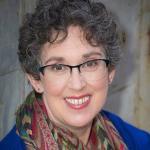ORIGINS WORKSHOP
NYC, NOVEMBER 5TH
Join me in New York City on Tuesday November 5th for a one-day workshop exploring the growing edges of my work around how history, cultural context and family narratives shape the questions we hold and are the key to finding your groove in your professional life and doing the work only you can do. Including a private and personal look behind the scenes of one my current major projects.
Origins
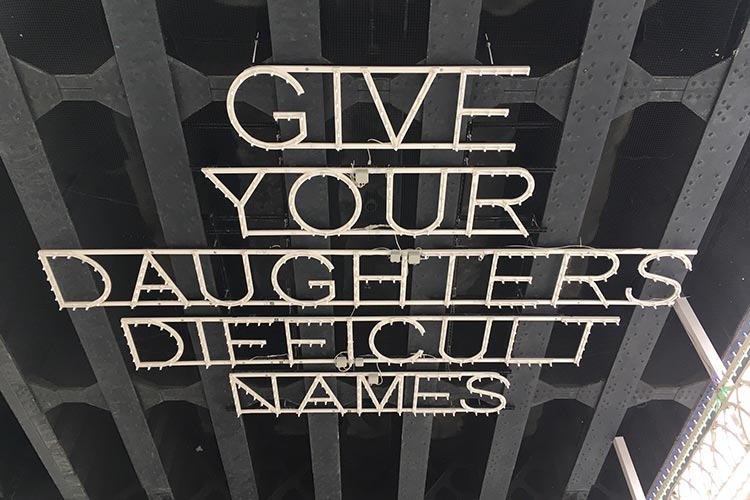
ORIGINS: A ONE-DAY WORKSHOP
The day we learned about Newton’s Third Law I came home from school and started pushing on the living room wall. For every action there is an equal and opposite reaction. The idea that the wall was pushing back at me blew my mind. I pushed over and over again as though I might see the wall push back if I just concentrated hard enough.
When dinner time rolled around I kept an eye on the chair too, pushing up from below as I sat. I can’t remember if I told anyone what I was doing or asked them to weigh in on the physics of it all. I probably did. I took most opportunities sitting round the table to ask questions.
There was a lot of time around the kitchen table when I was growing up. Life in our house was lived in the kitchen. There was always someone there to feed – children arriving home from school, my grandfather who liked an early dinner, friends or extended family who’d dropped in for a cup of tea.
As we sat around the table it was not unusual for me to be told, “Megan, quit dinging on now.” I was an observant, curious child and I often outstayed my welcome on the question front, asking one or two or five too many. My parents grew weary of the constant inquisition but one person who never told me to desist was my grandfather. Some of the adults would complain he’d feign deafness to ignore questions he didn’t want to answer but he always heard mine.
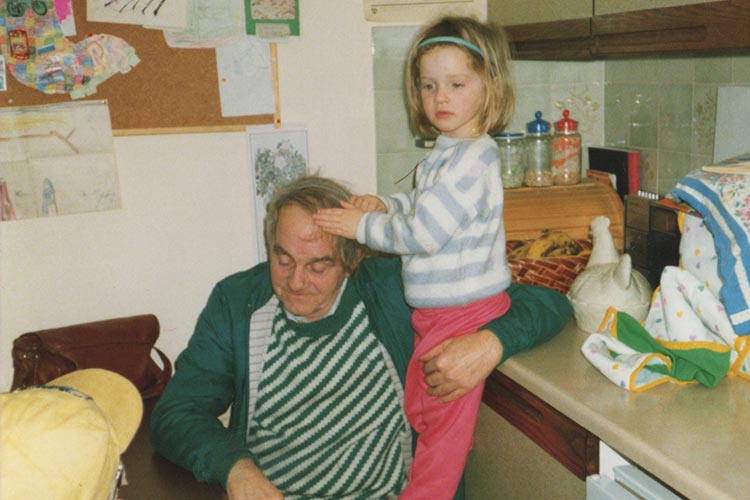
“Granda Never Tired of talking to us kids”
Granda never seemed to tire of talking to us kids. Answering questions, telling stories, making jokes. And it was a good thing too, because as much as I was told to “quit dinging on” I never was able to. I fundamentally didn’t know how. This curiosity, asking all these questions, was like a primal drive. I just couldn’t help myself.
So I kept asking. Although I didn’t always get answers. A couple of years after Granda died I got an English assignment to interview an ‘old person’ and write their life story. I asked my great aunt Joan – who was a grandmother to me for all intents and purposes – as she was the final remaining member of my grandparents generation with all her marbles still intact. The whole process was like pulling teeth and I got next to nothing out of her. It was as if, in asking her the most basic questions about her life, I was asking her to give up state secrets.
Too Many And Not Enough
The years passed, Joan died, I moved away to London and made my life there. But still on my trips home I would find myself once again in the kitchen, once again asking questions. Questions about big things and little things. And so often what I’d get in return was blank stares, shaking heads or exasperated faces. “You think too much.” “You’re always overanalysing things.” “You live too much in the past.” “You ask too many questions.”
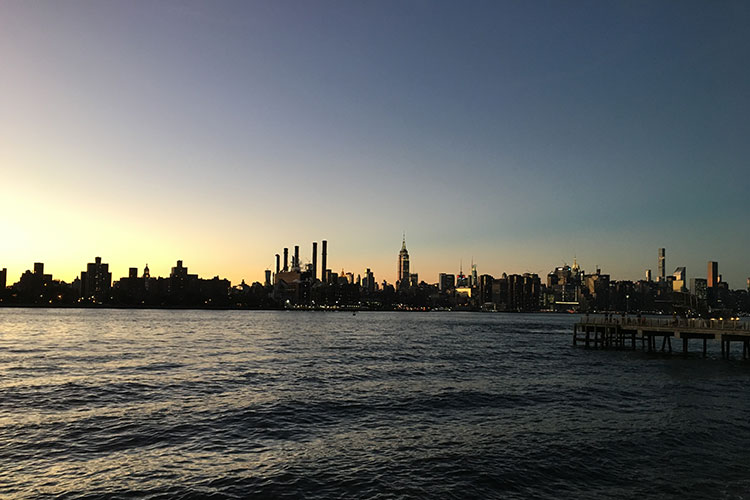
“I was virtually silent in the rest of my life”
The funny thing was for all my vocal questioning at home I was virtually silent in the rest of my life. Through these years I was trying to figure out what to do with my life, how to make my business work, and how to know if the work I was engaged in was what I was actually supposed to be doing. I was looking in every direction for answers but I never uttered a question out loud.
I’d go to marketing conferences, personal development seminars, and business meet ups. I was a sponge, silently soaking up all the knowledge I could but mostly going round in circles. Deep down I knew none of this stuff was going to solve my problem. I knew the big issue was that I couldn’t articulate my problem. All I could say was that something didn’t feel right yet. Something was missing. There was something I couldn’t see. I didn’t ask for help because I didn’t know what question to ask.
Difficult To Reconcile
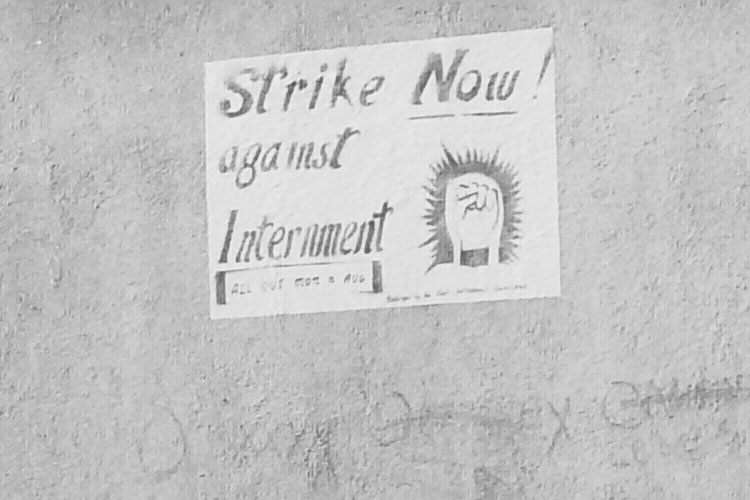
“I’ll tell you when you’re 18”
There were some questions I asked as a child that my grandfather would respond to with, “I’ll tell you when you’re 18.” He died a few years short of that birthday but as I got older I started to hear some stories about him that didn’t totally gel with my notion of who he was. I’d always known the bailiff story…
During the early seventies the Northern Ireland Civil Rights Association organised a rent and rates strike as an act of civil disobedience in response to the re-introduction of internment without trial. People – largely Catholic men and boys – were being taken from their homes and off the street and imprisoned without trial for an indefinite period of time. Like many Catholics in Derry my grandfather took part, refusing to pay his business rates in protest.
Early one morning my mother, then a teenager, looked out her bedroom window to see Granda’s van being winched up onto a skip lorry. Thinking it was being stolen she ran downstairs to raise the alarm. Granda went outside barefoot and in pyjamas only to be greeted by the bailiff with papers in hand. Without breaking his stride Granda hit him. My great aunt Joan and my mother weren’t far behind him. As Granda went to try to retrieve the van, my mother and Joan grabbed the bailiff, one arm each. Joan picked up a milk bottle. Granda shouted, “Hit him!” but she didn’t have the stomach for it. They never got the van back.
There was a sense of pride that went along with that story and I could reconcile it with the gentle but spirited and principled man I knew. Eventually Granda, a local councillor at the time, handed himself in and, as far as I know, was the only person arrested over the strikes.
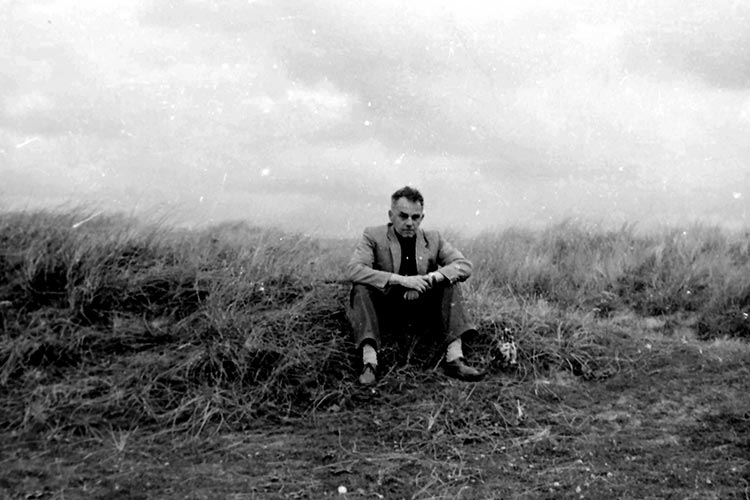
Other stories were harder to reconcile
Other stories were harder to reconcile. Like the one about the time he hopped over the counter in his shop, at an age when everyone was surprised he still had it in him to make such a deft leap, to swiftly punch a man – a customer – who’d done something to displease him.
And there was the comment from my uncle that although Granda may have been “all things to you children, to a lot of people he was just a grumpy man.”
The “No Talk” Rule
Right around the time I had successfully followed the instructions on how to build a business and market it effectively I stumbled upon a book on the street in New York. My low-level despair was rising at this point in my professional life because here I was finally making my web design business work but it still didn’t feel right. The itch I had deep down had not yet been scratched. The problem at the heart of it all remained unarticulated.
The book-seller on this particular Brooklyn street corner only had about 30 books laid out. I picked up one called Adult Children: The Secrets of Dysfunctional Families, and it fell open at a page with a sub-heading that read, “The ‘No Talk Rule’/Keeping The Family Secrets.’” This book was right up my street.
I’m not sure I’d thought of my family as being ‘dysfunctional’ but the book began by explaining 90-95% of people come from dysfunctional families. As I thought about my own family and the families of pretty much everyone I knew, that statistic started to make sense to me. None of us are normal, we’ve all got our own brand of crazy going on at some level.
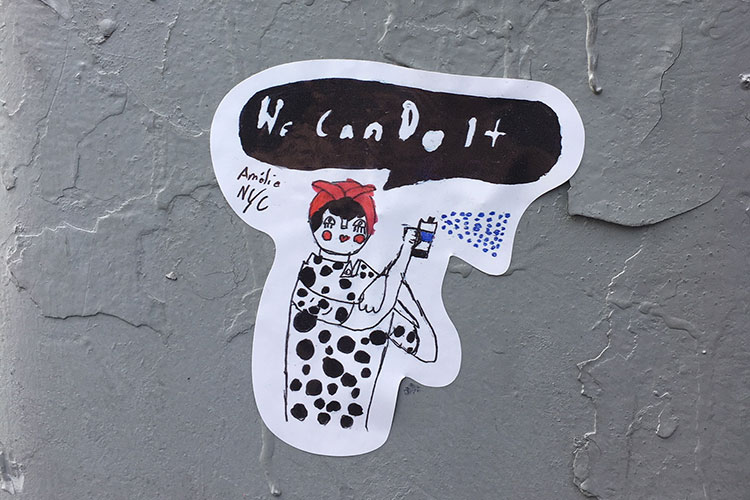
None of us are normal, we’ve all got our own brand of crazy going on at some level
I remember reading obsessively on the plane home, a new aha moment with every page. I didn’t know the full implications yet but I was immediately clear, this was the missing piece of the puzzle. I had long known that people don’t have business problems, people simply have problems, and those problems show up in their business in the same way they show up in every other area of their life. But reading this book was the first time I began to think about and understand family systems.
It took years to get to grips with all of this and integrate it into my understanding of how it plays out in our professional lives but my instinct was right, it was the missing piece of the puzzle. Before discovering the teachings from the world of family systems I had been trying to make sense of myself and my work in isolation. I hadn’t been looking at the larger landscape and the forces that shaped me. Once I changed that perspective everything started to make sense. Slowly but surely I started to scratch that previously unreachable itch and the ache in my soul began to subside.
“You’ve Always Asked Too Many Questions”
These days, whilst the work is not always easy and the demons of doubt and self-criticism still drop in on their way past, I am very comfortably in the groove of the work only I can do. I don’t have 5 year plans or exit strategies but I do have a deep sense of purpose and certainty that I’m doing the right things and heading in the right direction.

We are individual parts of a family system
I recently followed my instincts to begin a very personal project I’ve been thinking about for years. It involves talking to my family about things not everyone necessarily wants to talk about. In the midst of one discussion one of my brothers looked at me and said, “You’ve always asked too many questions.”
We are not individuals. We are individual parts of a family system, which in turn is part of the larger family system that is a community, and the larger one again that is a culture. The dynamics and rules of these systems are mammoth invisible forces that shape us from the moment we’re born. We cannot understand ourselves and our direction forward without understanding the forces and systems that have shaped us and continue to shape us to this day.
The Questions We Hold Define Us
We are defined by the questions we hold and so too is our work. Those questions – the ones we come back to obsessively again and again, consciously and unconsciously – are not random and they don’t really come from us. They are seeded and shaped by our history, our cultural context, and the people and events that came before us.
We spend most of our time worrying and thinking about what we should do next or whether our current business, job or project is right for us. But what we should be focusing our attention on is understanding what questions underpin our work and where they came from. Because if you’re clear on that then everything else starts to make sense.
Origins Workshop, NYC, November 5th
The one-day Origins workshop in Manhattan on November 5th is going to be all about understanding where you came from and how that continues to propel you forward – consciously or unconsciously, constructively or destructively. You’ll discover how to harness the narrative of your family, culture and your history to move you and your work in the direction you want to go. You’ll uncover patterns that are hiding in plain sight, controlling more than you ever imagined.
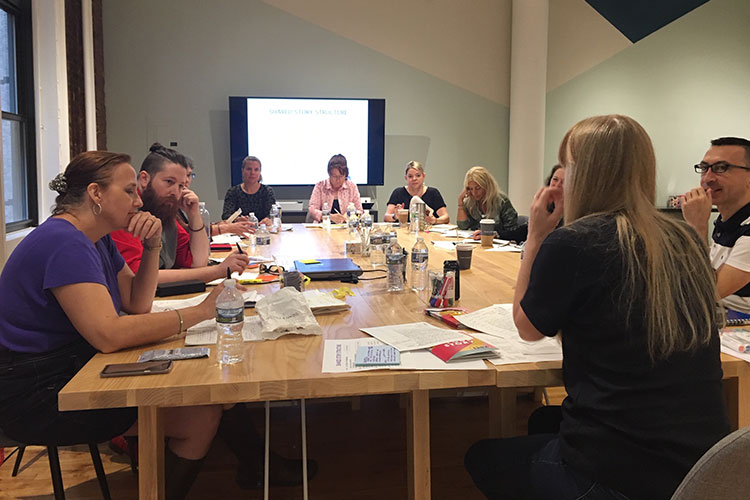
Join me around the table in NYC to uncover the narratives that formed you and the questions that define your work
History, family and the fundamental human need for connection are powerful forces that most of us aren’t aware of as they play out in our work and lives. Our story is always one born out of a collective story. We are not separate from our history and those who have gone before us – to try to work without understanding that context is foolish, painful and filled with struggle.
During our time together in New York you’ll learn how to align your efforts with your personal and cultural historical forces so you can make your way in the world, progress your work and grow your audience without the invisible friction that has been inextricably holding you back until now.
We all have fascinating, unique, important work within us, but we can only unearth it if we dig into the narratives that formed us. There is no separating your real work from your origins.

There is no separating your real work from your origins
I have kind of an acute experience of all this because of the nature of Northern Ireland and the violent times I grew up in. At the Origins Workshop in New York I’m going to share a detailed private case study from my own life – a project I’m in the midst of that I haven’t talked about with anyone in my professional sphere and can’t yet talk about publicly. It’s a longterm project and I’m still not totally sure I’ll ever be able to talk about it publicly.
I’ll share the story of this private project with you in New York. I’ll share what the history means for me personally and how, although seemingly unrelated, it informs and shapes everything I do in my work. And in the process you’ll uncover what your own history means and how it’s already playing out in your work and story in ways you never realised before but will become undeniably obvious to you.
Together we’ll explore how you can tap into the origins of your own questions and work, so you can put yourself in context and move forward with deep clarity about the work only you can do. As with all of my workshops I’ll keep the group small enough that I can get to know everyone in the room and we can have group discussion to go deeper into the questions at hand. We’ll sit around the family table together and uncover the questions that matter most to you and that will define your work for years to come.
Join me for the Origins workshop on November 5th 2019
The workshop takes place in Tribeca, Manhattan, NYC. Book your ticket now.
We’ll have time for a hot seat or two so if you’d like to take a deep dive into your work, your next steps or your story with me, book yourself a hot seat ticket. (Feel free to email me if you have questions about how the hot seat works.)
Robbin Marcus Alexander Technique of Decatur GA/Marcus Music Studio Georgia, USAWorking with Megan at Tell Your Story in NY was a life-changing experience. I was excited to be doing this, and honestly, more than a little nervous. Going up to NY on the airplane I kept thinking "Why did I want to do this? What if my story is just not that interesting?" I was very relieved that my turn in the Hot Seat would be on Day 2, so I could spend the first day observing and learning.
As soon as we began, Megan instantly put the entire group at ease. She created a safe space for story telling, sharing, and questioning, and out of that safe space, we all began weaving common narratives of desire for community, connection and sharing our gifts with the world. One of things I found most fascinating was that while the details of the stories changed from one person to another, the common themes were so often exactly the same.
Megan's trademarked format of 14 Elements in 4 Acts is quite remarkable in helping people to organize their thoughts and discover the "meat" of their own stories. Again and again I watched her work her magic with other participants on that first day. By the time my turn came on Day 2, I felt comfortable, safe and ready to explore my own story. I had a good sense of what my story was about, but I don't think I could have found a way to make sense of it the way Megan is able to do. She is a true master of getting to the heart of what matters in each person's life.
If you have the opportunity to work with Megan, take it. You won't regret a minute of it - from the pre-call to the follow-up call. I'm still learning and I look forward to exploring this format for future writings and blog posts.
Join me for the Origins workshop on November 5th 2019
The workshop takes place in Tribeca, Manhattan, NYC. Book your ticket now.
Photography by Billy Houston, Kevin Barr, Shaun Heaney and Megan Macedo
